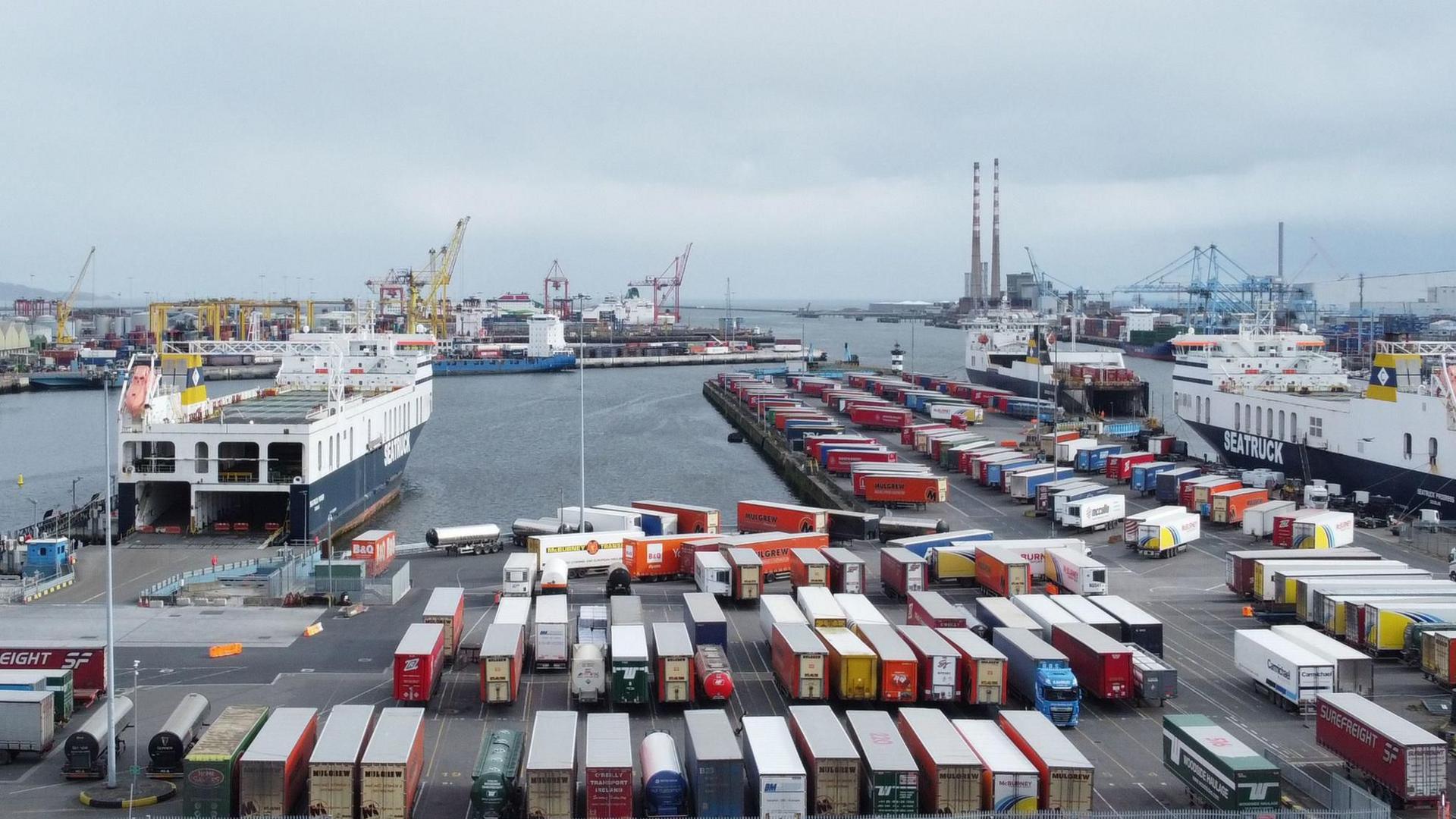Irish trade to GB now subject to post-Brexit rules

The changes do not impact trade between Northern Ireland and the Republic of Ireland
At a glance
Goods from the Republic of Ireland are now subject to new post-Brexit border controls when entering Great Britain
The new controls began on Wednesday morning as part of a long-delayed UK plan to apply more checks on EU imports
The UK government says NI goods going to GB via Republic of Ireland ports will continue to have unfettered access
- Published
Goods from the Republic of Ireland are now subject to new post-Brexit border controls when entering Great Britain.
The new controls began on Wednesday morning as part of a long-delayed UK plan to apply more checks on EU imports.
The changes do not apply to Irish goods going to Northern Ireland.
Trade between Ireland and Northern Ireland is covered by the Windsor Framework meaning there are no new checks or controls.
The UK government said the new controls will "sharpen the competitive advantage of Northern Ireland businesses" as it will be easier for Great Britain importers to buy goods from Northern Ireland compared to the Republic of Ireland.
Republic of Ireland goods cannot simply be shipped through Northern Ireland ports to avoid the new processes - only "Qualifying Northern Ireland Goods" are allowed unfettered access to Great Britain.
The government said Northern Ireland goods going to Great Britain via Republic of Ireland ports will continue to have unfettered access.
A spokesperson said: "Northern Ireland goods will benefit from full and unconditional unfettered access, regardless of whether they move indirectly via Ireland.
"This will further bolster Northern Ireland's place within the UK's economic union and more squarely focus the benefits of unfettered access on Northern Ireland traders."
When the UK left the EU in 2021, goods from Great Britain going to the EU were immediately subject to the customs and regulatory processes applied to the imports from any non-member state.
However, the UK government was not ready to apply controls on EU goods and the introduction of those controls has been delayed on five occasions in the subsequent years.
Now EU goods arriving in Great Britain require full customs processes and the pre-notification and official certification of some agri-food products.
This will add a significant administrative burden to EU to Great Britain agri-food exports and Ireland will be particularly affected as the UK remains its single biggest market for food exports.
It is understood that the Irish government is not anticipating significant problems with the new arrangements as large exporters are well prepared and UK authorities are expected to take an initial approach of "education not enforcement".
It is still unclear when Irish agri-food products will start to be physically inspected at Great Britain ports.
Goods from the rest of the EU will start to face physical checks from April, but goods from Ireland will not be subject to checks any earlier than October.
The government is yet to clarify how it will discriminate between Irish and Northern Irish goods arriving from Northern Ireland ports without imposing any new bureaucracy on Northern Ireland businesses.
Related topics
- Published22 January